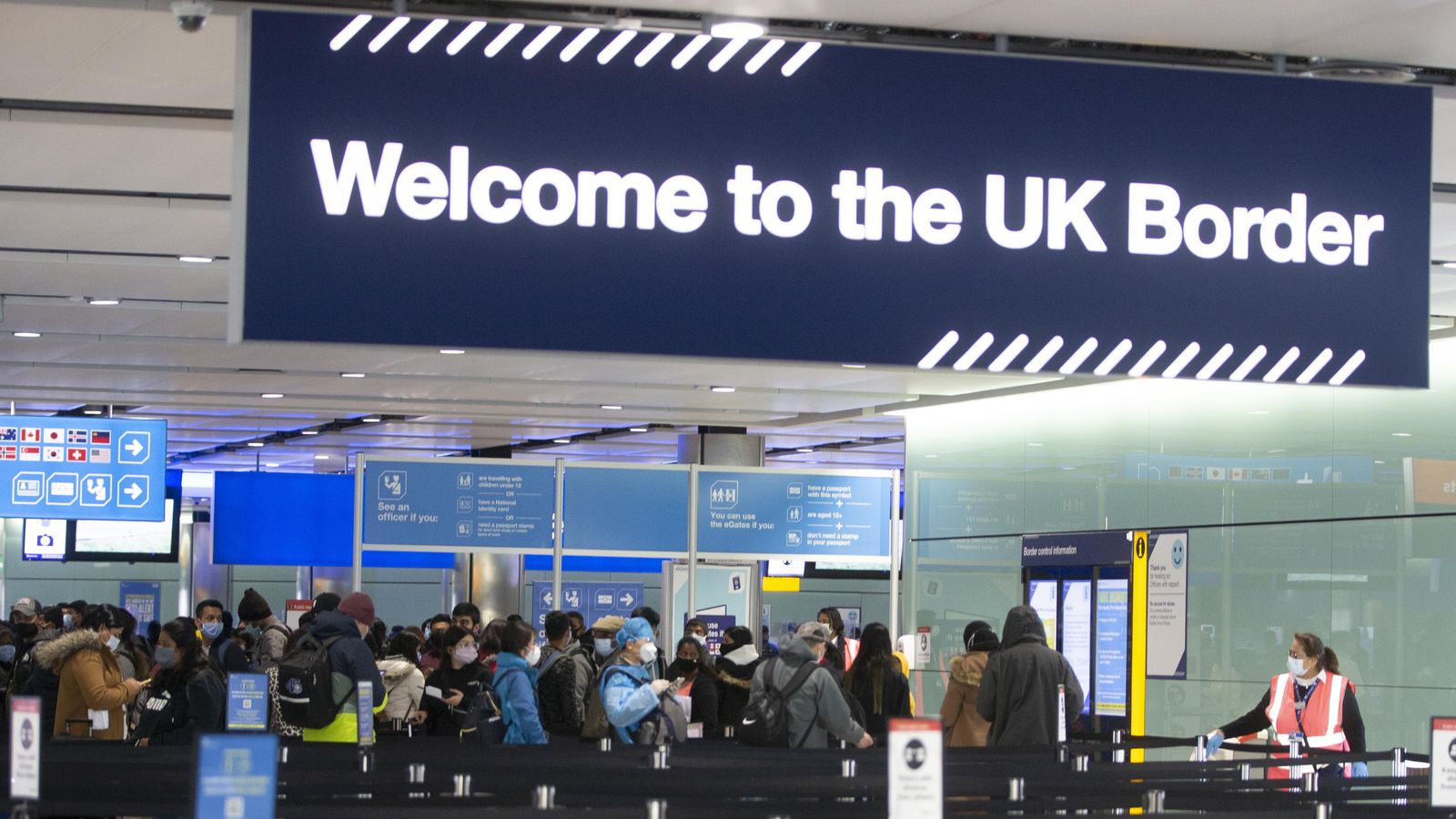The UK’s response to China opening up overseas travel is “under review”, the defence secretary says.
Ben Wallace made the comments after a government spokesperson said there were no plans to introduce mandatory COVID-19 tests for arrivals to the UK from China, and a series of countries imposed controls.
The news follows China announcing that it was abandoning its COVID-zero policy and was preparing to reopen its borders in January.
There are fears that the end of almost three years of strict measures in the country of 1.4 billion people could result in a massive spread of the disease worldwide.
The US announced on Wednesday that, from 5 January, all arrivals from China will have to provide a negative COVID test result taken no more than two days before their flight.
The US Centers for Disease Control and Prevention said the move was due to the surge in infections and a lack of adequate and transparent information from China, particularly on the strains circulating in the country.
That came after India, Italy, Taiwan, South Korea, Malaysia and Japan said they would also place restrictions on travellers arriving from China.
Asked whether the UK government would consider restrictions for travellers from China, defence secretary Mr Wallace said: “The government is looking at that, it’s under review, we noticed obviously what the United States has done and India and I think Italy has looked at it.
“We keep under review all the time, obviously, health threats to the United Kingdom, wherever they may be.
“I think the Department of Transport will take medical advice, talk to the Department of Health and they’ll come to some decisions depending on what we see coming out of China, but at the moment it’s under review.”
Read more:
Zero-COVID U-turn means infection rate will be shrouded in secrecy
Half of passengers on China flight to Italy have COVID
Exclusive: Doctors describe chaos in China’s hospitals
A government spokesperson previously said: “There are no plans to reintroduce COVID-19 testing or additional requirements for arrivals into the UK.”
But the UK Health Security Agency will continue to monitor the prevalence and spread of harmful variants and keep international data under review, they added.
Beijing’s announcement means millions of Chinese people could go abroad for next month’s Lunar New Year holiday – the first time most have been able to travel internationally since 2020.
Travel companies Trip.com and Qunar said international ticket bookings and searches for visa information on their websites had risen following the news, with Japan, Thailand, South Korea, the US, Britain and Australia in highest demand.
Australia’s prime minister Anthony Albanese told the ABC his country was not making any change to entry rules at this stage, adding: “…we are continuing to monitor the situation, as we continue to monitor the impact of COVID here in Australia as well as around the world”.
Click to subscribe to the Sky News Daily wherever you get your podcasts
New Zealand’s Ministry of Health had a similar response, telling the NZ Herald: “…the current public health measures remain appropriate for managing the pandemic”.
In Thailand, the Bangkok Post said the government is preparing to welcome Chinese tourists to the country, quoting the transport minister Saksayam Chidchob as saying the Ministry of Public Health was working with the Chinese embassy on “travel measures”, although no further details were given.
He added that he was confident the ministry could manage the COVID situation.
In Singapore, The Straits Times reported that the rules for arrivals from China will remain the same – those who are not fully vaccinated will need to do a pre-departure test, while short-term visitors also have to have insurance for COVID-related medical costs.
The true scale of China’s COVID-19 infections is unclear, as there is little reliable official information, but almost 37 million people may have been infected with the virus on a single day last week, according to the Bloomberg news agency.











